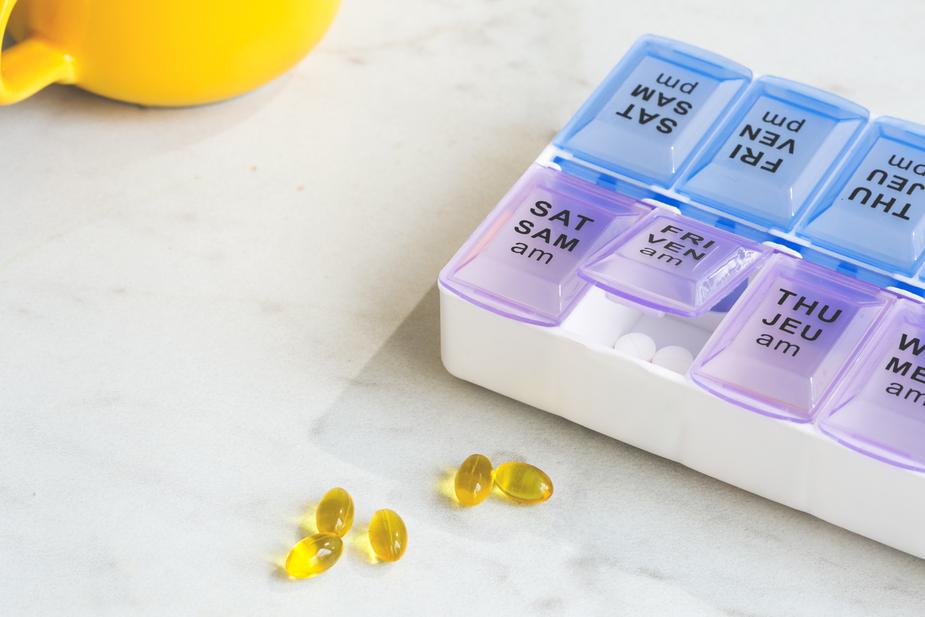
Is it Just a Problem with Motivation?
ADHD is a neurological condition that impacts how people get things done, especially when it’s a boring task with a far-off deadline. Simplistically, it’s about productivity—except that people aren’t simple. Psychologically, that impact on productivity can affect how you see yourself and how others treat you. Ultimately, the impact of ADHD is on self-esteem.
Let’s talk about how to fight that ADHD tendency to procrastinate, not just so that you can better win the fight with your to-do list, but more importantly so that you can feel good about your efforts at the end of the day.
Start with a Good Foundation
Let’s start with the most boring strategies first: get enough sleep, eat a generally healthy diet, and exercise regularly. I know, you’ve heard this all before. And I also know that ADHD makes all of this much harder. But what we also know is that these are good points of intervention to make tomorrow more productive. These healthy lifestyle factors won’t give you superpowers, but they will enable you to bring your best. Not only will you produce better quality work more quickly, but you will also suffer less in doing it—it won’t take as much force of will to make yourself push through.
I’m not suggesting that you need to live like a monk, so much as that these good lifestyle habits are something to regularly aspire to. If you missed the mark today, then make tomorrow a better day. Also, partial progress adds up—five hours of sleep is better than four and six is better than five. Don’t beat yourself up, but take it seriously. This is where feeling good about yourself begins.

Take Your Meds If You Have Them
I’m a psychologist and I don’t write prescriptions, but I am a big fan of extended-release stimulants for ADHD, for those who need it. They aren’t magic and they won’t make boring tasks fun, but I like to say that they close the gap between intentions and actions. You still need to put in the work and make good choices, but medication helps folks with ADHD to better bring their abilities to the demands of the moment.
We have hundreds of research studies that show that the stimulants are the most effective medications in all of psychiatry. A small minority of people don’t get a good response or can’t tolerate the side effects, but most people get some benefit. I tell clients, “If you can’t tell whether it’s working, then it’s not working.” The benefits shouldn’t be subtle—if they are, then you’re probably not on the most effective dose.
Some people don’t like the idea of needing to take medication because of what it might mean about them. Or they make claims about risks and side effects that are not actually supported by the science. When having these discussions with clients about weighing the potential benefits and risks of stimulants, I encourage them to also consider the risks of not using medication for ADHD—we have hundreds of studies on that, too. For more on how to make a well considered, well informed decision about ADHD medication, check out my presentation on the Psychology of Medication for ADHD.

Actually Know What You Need to Do
In order to do the right thing at the right time, you need to actually know what you’re supposed to do. I know, this seems like a basic idea, but how often do you find yourself in those horrible moments of realizing that an important task fell off of your radar? Or in the vague dread that there is a ticking time bomb out there that you forgot about?
Productivity begins with actually knowing what you need to produce. This means some sort of a to-do list. The problem though with just having a list is that it doesn’t tell you when you’re supposed to do what. This is why I often recommend that clients put to-do list items into their schedule, that they block out time for various tasks in a wise and strategic manner. This requires taking some effort to really think through what needs to be done, in what order. It also requires sometimes making difficult choices about what is less important and needs to be put off, as well as forcing yourself to hunker down into that hard stuff that you would rather not do.
These plans can flex as things come up, but it helps to have something of a plan to start with. It also makes it more likely that you will tackle the important items rather than fiddling with the easier but less important stuff, like scrolling through emails.
Reduce Competing Distractions
The stuff that you need to do is more likely to get done if it isn’t put into a losing fight with stuff that is much more interesting. A big part of ADHD is that it’s much harder to push away fun distractions so that you can instead choose more difficult or boring tasks. So tilt the odds of success by getting rid of those distractions in the first place. Close out fun browser tabs, turn off alerts, use a white noise machine to block out noise, etc.
Whatever you find yourself distracted by, make it quieter, smaller, farther away, or harder to access. Sure, you can still be distracted inside your own head in an empty room, but we’re trying to control what we can. We’re not going for perfection here, just better. And by the way, if you get enough sleep, eat well, exercise occasionally, take your meds, and have a plan, you’ll have an easier time resisting distractions.

Picture and Feel the Future
ADHD is all about seeing time and feeling the future. Those with ADHD have a harder time letting go of whatever is happening in the moment so that they can instead focus on the future. Far-off deadlines don’t hit their radar or stir them to action until they get much closer to the now—even if they’ve been burned on exactly the same situation a hundred times before. This can be confusing, maddening, and depressing, and yet here we go again.
You can push back against this tendency by making a conscious effort to pause and picture the future—I don’t feel like working on this right now, but how will I feel tonight if I get a few good things done? How will I feel walking into that meeting with my boss? In other words, don’t think about how you will feel in the moment doing the boring task, but rather picture in vivid detail how you will feel about it later. Make the future impact bigger in your mind so that the future has a shot at winning out over the temptations of the moment.
I talk more about my current understanding of ADHD, and more importantly, what to do about it, in my presentation ADHD is All About Seeing Time and Feeling the Future.
Cut Yourself Some (Deserved) Slack
I’m all about helping folks with ADHD to be more productive. Life involves work and we all have stuff to do. Unless your mom can write you a note, you need to get the job done. Having said that, happiness does not require perfection and you don’t need to be a robot to earn the respect of your colleagues. We all have limits and things about ourselves that we wish were different.
Good self-esteem means that you can feel good about the parts of yourself that you are proud of, that you give yourself credit for the hard work that you put in, but also that you can accept the parts of yourself that you don’t feel as good about. You can see yourself (and others) in a balanced way where you feel like you still bring more positives than negatives. Sometimes the problem is one of goodness of fit and you may be better served with seeking your fortunes elsewhere. For example, if a friend has a really hard time with your struggles with being on time and they are unable to be more understanding and flexible, despite your best efforts, there may come a point where you need to reconsider whether this friendship works.
Putting in good effort on managing your ADHD brings two benefits. The first and obvious one is that it helps you actually manage the demands in your life more effectively. However the equally important second benefit is that it makes it easier to recognize that you have done everything that can be reasonably expected of you. As the old saying goes, change what you can, accept the rest.
Ari Tuckman, PsyD, CST has written four books (available on Amazon):
ADHD After Dark: Better Sex Life, Better Relationship
Understand Your Brain, Get More Done
More Attention, Less Deficit
and Integrative Treatment for Adult ADHD.
His “More Attention, Less Deficit” podcast has more than 100 episodes and almost three million downloads. He is a psychologist and sex therapist in private practice in West Chester, PA and co-chair of the CHADD conference committee. You can read samples of his books and listen to recordings at www.adultADHDbook.com
See Also:
Coping With ADHD & Anxiety – Blog by Kerry Troester
My Story of Stopping Medication – Blog by Rick Green
Just Try Harder? Are you Kidding?! – Video by Rick Green




Leave A Comment
You must be logged in to post a comment.